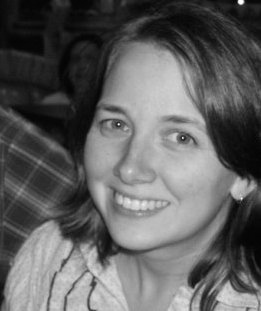|
I’ve found that at the end of a stressful day, or when I’m struggling with a problem that seems too big to handle, or if I’ve gotten crosswise with someone, if I can just step into the kitchen and take a moment to cook a dish—any dish really—I come out in a better place in the end.
The kitchen is one of my happy places. It is the closest thing I have to an artist studio. Chopping and whisking and stirring put me in a mentally restful zone of creativity. Cooking is one of those activities that produces something tangible in short order. Unlike much of my work, cooking has a finish line, an end point, a result. However the dish turns out, I can look at it and say, “I made this.” As God’s creatures maybe we all need spaces in our lives to be creators. But what elevates this experience to the next level is having the opportunity and privilege of sharing my dish with another person who is eager to eat. What joy! [After reading the poem “The Plastic Angel” by Ann Weems, extend the invitation by saying. . .]
Sometimes we come to this table feeling sort of plastic, as if our own annunciations are feeble—filled with doubt. But from the beginning, this table has always been a place that made room for those who doubt, those who misunderstand, those who talk a good game, those who miss the messages, those who loose hope, and those who lack glory. And, yet, Jesus welcomed them around the table. There is a place for us here. [See Ann Weems, “The Plastic Angel,” in Kneeling in Bethlehem (Philadelphia, PA: Westminster Press, 1987), 43. Currently available to be viewed via Google Books.] He told them another parable. “The kingdom of heaven is like leaven which a
woman took and hid in three measures of flour, till it was all leavened.” (Matt. 13:33, RSV) On July 24, a seemingly ordinary dump truck was traveling down the I-5 through Tacoma, Washington. And everything was going as planned until around 4pm when the day started to get warm and summer sun started to heat up the metal sides of the dump truck as it carried a huge load of fresh dough down the interstate. And as the truck got warmer and warmer, the dough began to grow, and expand, and spill out of the top of the dump truck—oozing over the sides and onto the interstate, leaving a trail of globs of dough. Crews had to be called in to clean up the overflowing mess. Maybe the Kingdom of Heaven is like a dump truck filled with dough on a hot summer day—overflowing in the midst of our rush hour. Maybe part of believing in the parables is to believe that Christ can and does meet us in the everydayness, in the ordinary of our common lives. Amidst the stuff of life, God continues to teach us, and encounter us, and remind us to watch for the quiet, almost silent, overflow of the Kingdom of Heaven. John Mark Hicks posed this very question to a gathering at Pleasant Valley Church of Christ. It’s an important question—especially for those of us who claim to follow Jesus.
Think about the meals you typically eat. Do you eat with strangers? Do you often find yourself at the table with those who think or act differently than you? With those who have different backgrounds than you? When you break bread, whom do you share that bread with? Do you dine with outcasts? Would the righteous and self-righteous judge you for the company you keep at the table? Maybe it would be an interesting exercise to keep a list of the people around the tables where we sit and eat for a few weeks. What might we learn from such a list? (See Pleasant Valley Church of Christ, ”Come to the Table: What is God Doing in the Lord’s Supper” with John Mark Hicks. YouTube video, 44:04. Posted Mar. 5, 2017. https://www.youtube.com/watch?v=pwEm8b2Mpsw) We believe that Christ meets us at the table--not just this table here; but at restaurant tables, at fellowship hall tables, at boardroom tables and at our kitchen tables. We believe that we can call upon Christ to transform our lives, our relationships, our world. And through our spiritual communion, we may experience real change.
After pouring out his heart to God, one sleepless, stressful, fearful night, The Rev. Dr. Martin Luther King, Jr. experienced that sort of change at his own kitchen table. In his sermon from August 1967, “Why Jesus Called a Man a Fool,” he described feeling Jesus speak words of encouragement to “stand up for righteousness, stand up for justice, stand up for truth. And lo, I will be with you, even until the end of the world.” What Dr. King described as a quiet assurance came over him, and because of that moment he found the courage to continue his mission. Let us all approach this table with our own honest prayers, inviting Christ to show up once again in our lives, at our tables, and bring about divine change among us and within us. (King, Jr., Martin Luther. “Why Jesus Called a Man a Fool.” Mt. Pisgah Missionary Baptist Church, 8/27/67, Chicago, Ill. 27 Aug. 1967. Web. 16 Jan. 2017) |
written by RachelSet a table, invite Christ and others, leave an empty chair, serve up some powerful questions, and break bread. Archives
January 2021
Categories
All
|

 RSS Feed
RSS Feed